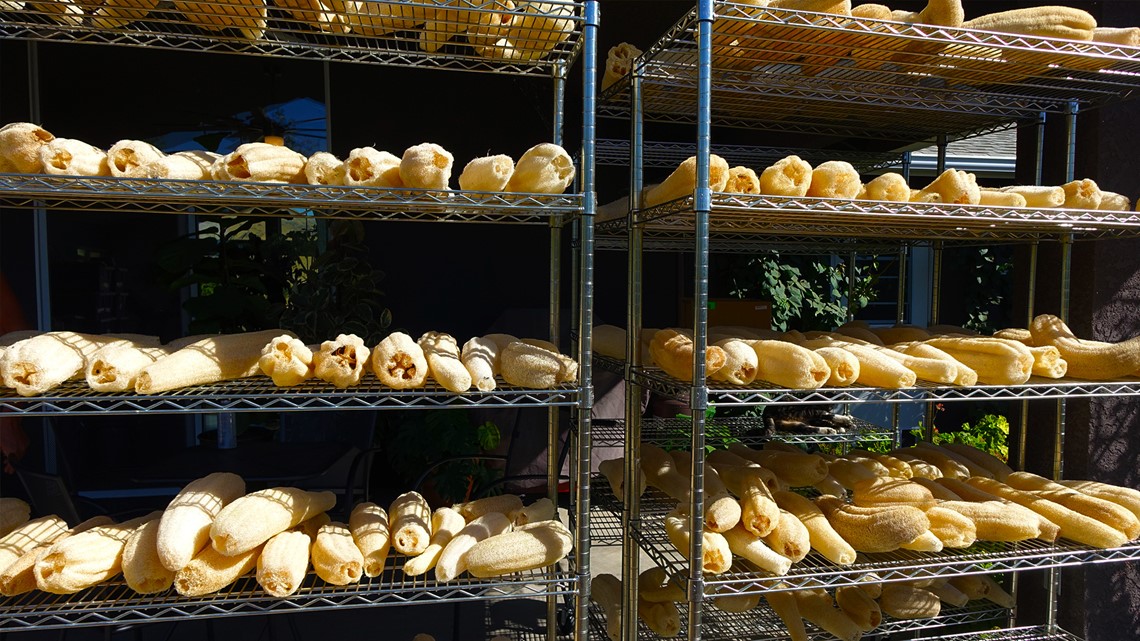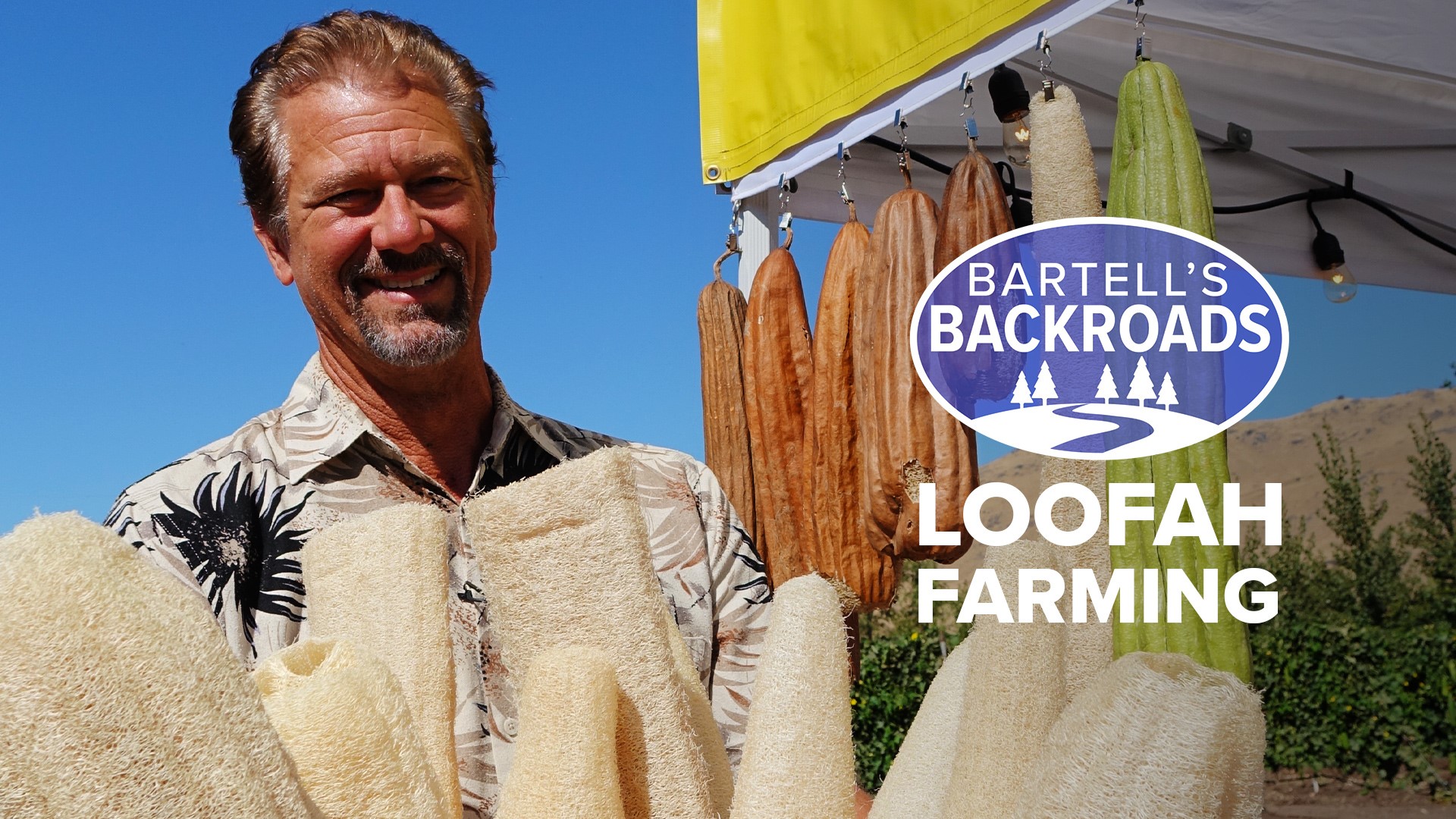REEDLEY, Calif. — You may be familiar with the plastic shower loofah, but did you know the loofah grows in a field?
Luffa Gardens in Reedley, Calif., is one of the few farms in the state growing all-natural sponges on a large scale. The loofah plant is a member of the cucumber family. When the loofah is dried, the inside turns into a web-like sponge. The loofah grows much like a cucumber, but farmer Nathan Pauls trains the plants to grow on fence-like wires, much like grape vines.
Pauls says the plant is not native to the United States, but grows well in the Central Valley.
"Scientists don't really know where they came from. They are sub-tropical. They grow in Mexico, Guatemala," Pauls said.


Luffa Gardens started by accident. Eight years ago, Pauls and wife Sherri were gifted a dried up loofah plant with seeds still in it. The plant sat in storage for a number of years until Pauls decided to put the seeds in the ground.
"The response we got was incredible. Everyone loved them," Pauls said.
Luffa Gardens is selling on a small scale, right now. They are working to ramp up production, but processing the loofah is not easy. Everything is done by hand.
First, the loofah must be dried. Then the skin must be pulled off to expose the skeleton. After that, the loofah must be washed and the seeds removed by whacking it on a table.
"There are no machines to do this process yet," Pauls said.
He added the loofah is an all-natural, biodegradable, long-lasting sponge that will clean anything.
"We used the dish washing sponge in the sink for a year," Pauls said.
Although Pauls loofahs "can" last a year, he recommends composting the loofah after a few months of use.
SUBSCRIBE TO MORE OF BARTELL'S BACKROADS ON THE ABC10 APP:
►Stay In the Know! Sign up now for ABC10's Daily Blend Newsletter



